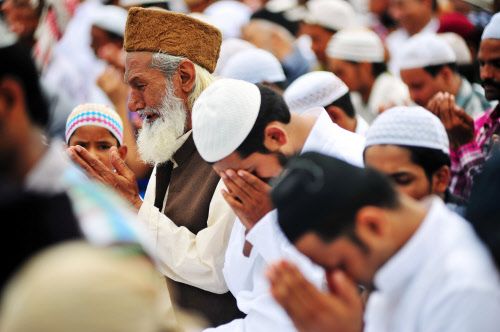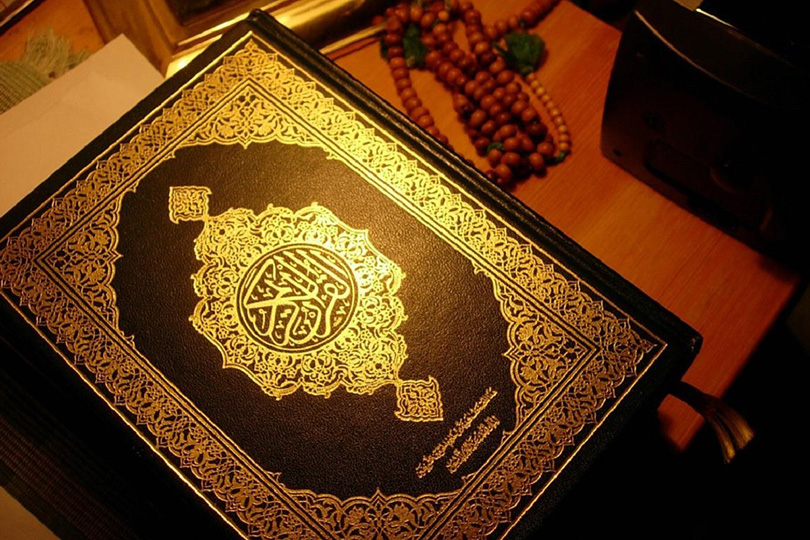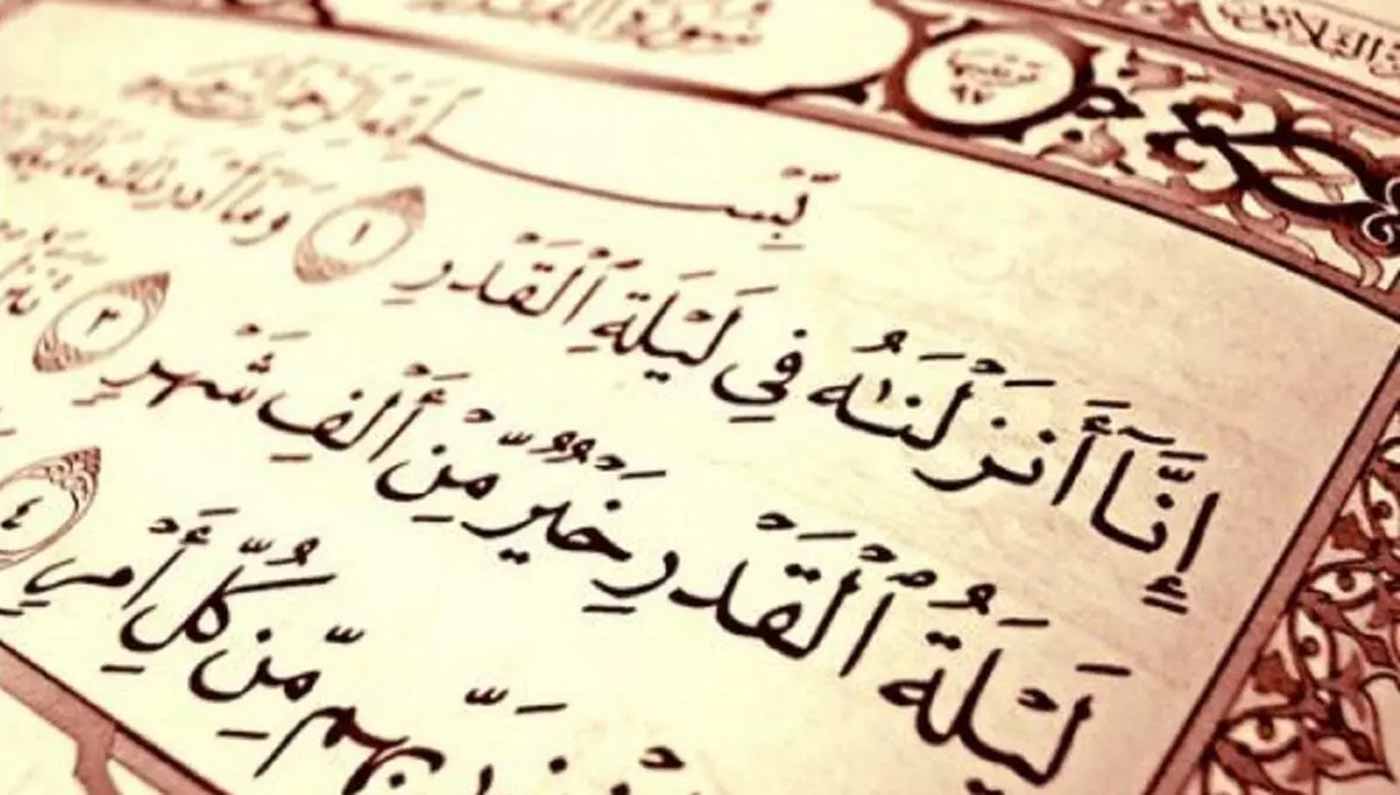On the authority of Abu Hurairah, may God be pleased with him, that the Messenger of God - may God bless him and grant him peace - said: (While a man was walking on a road, he found a thorn branch, and he took it, so he thanked God for him and forgave him) Narrated by Al-Bukhari and Muslim.
And in the narration that the Messenger of God - may God bless him and grant him peace - said: (A man passed a branch of a tree on the back of a road, and said: By God, I will bend this from the Muslims and it does not harm them, so I will enter Paradise) Narrated by Muslim.
And in another narration: (I saw a man turn over in Heaven in a tree that he cut from the back of the road, which was hurting people).
And in Ahmad’s Musnad: (He said, “Do this be lifted up, perhaps God Almighty will forgive me for it”
Meaning of vocabulary:
He turns in paradise: he dives in it.
Noon Road: Midway.
Thank God for him: accept his action and reward him with good.
Story Details:
Islamic law is characterized by comprehensiveness and attention to all life issues, through the rulings and etiquette it has decided to address all that achieves the interests of people in their livelihood and hostility, and contributes to the advancement of behavior and refinement of morals, and is transferred to the level of responsibility, away from the meanings of selfishness, selfishness and personal benefit.
On this basis, the Prophet - may God bless him and grant him peace - raised his companions, and he produced a generation with a high standard of sophisticated manners and polite behavior, in which the individual strives for the benefit of all.
In this hadith, the Prophet - may God bless him and grant him peace - tells us the story of one of the people who was possessed of concern for others, a man who did not know the details of his life, and perhaps he was among the common people, except that he was careful not to harm them or harm them.
So while he was walking with some of his needs, he saw in the middle of the road a tree branch full of thorns, so he stopped him, then he thought about the harm that the presence of such a branch might cause on people and their animals, so he said to himself: “By God, to turn this away from Muslims, it does not harm them.” He added, "May God Almighty forgive me for it."
A little work in the eyes of people, it may not cost anything from effort or time, but God Almighty with the greatness of his mercy and the greatness of his generosity made what he did a reason for forgiving his sins and entering Heaven, he deserved his good intention, and if it were not for the grace of God he would not be rewarded.
Pause with the Story:
The main issue dealt with in the hadith is the breadth and grace of God’s mercy, so forgiving and forgiving the sins of that man was a reward for his easy work, and so on, due to the greatness of that divine mercy.
The hadith also indicates the status of the actions of the hearts, because the actions of the servants, even if they participate in the apparent image, vary according to the meaning of sincerity, truthfulness and purity of intent in the heart of their owner. This is supported by what came in the famous hadith of the card, in which a man will be put up for him on the Day of Resurrection. It contains the word monotheism on one side, and all the records of his sins on another, and despite the fact that the card is burdened and the records diminish in its abundance and breadth, but that happened to him when he rose in his heart to achieve the meanings of monotheism.
Among the issues mentioned in the hadith is to give the road a type of rights and a call to act upon them, because people's paths belong to everyone and their responsibility is shared by all members of society, and this is a civilized precedent that reflects Islam’s interest in protecting public property, its cleanliness and its care, on the basis of religious faith.
Among the manifestations of Islam’s interest in this vital aspect is the demonstration of the virtues of this upscale behavior through a number of hadiths. The good news of forgiveness and paradise came in the context of the story, in addition to other hadiths that make this act one of the good deeds that indicate the faith of its owner. On the authority of Abu Huraira, may God be pleased with him. On his authority, the Messenger of God - may God’s prayers and peace be upon him - said: “Faith is seventy people, so the best of it is the saying of there is no god but God, and the least of which is the removal of harm from the road.” Narrated by Muslim, as well as Islam made that act a great chapter in charity, as it came from Abu Hurairah May God be pleased with him that the Messenger of God - may God’s prayers and peace be upon him - said: (Every peace - that is, a joint one - of people has charity for every day on which the sun rises: - Then he mentioned a number of deeds and in it: - And harm is removed from the path of charity) Narrated by Al-Bukhari.
On the other hand, a stern warning came against those who violate the rights of the road and make it a place of dirt and waste. On the authority of Abu Hurairah, may God be pleased with him, the Prophet - may God bless him and grant him peace - said: (Beware of the cursed, they said: What is the cursed O Messenger of God? What is meant is that he deserves the wrath of God Almighty and disparages people for spoiling the road and depriving them of enjoyment in places of rest such as the shade of trees and the like.
As for the second issue that should be noted, it is what was mentioned in the text of the hadith about thanking God for the action of that man. Among the attributes of God Almighty is: (Gratitude), and its meaning, as Imam Ibn Al-Jazri said at the end: “The grateful is the one who gives credit for a few of the actions of the servants and doubles them Recompense ", and in this sense Ibn al-Qayyim says in his nonunity:
He is grateful, and he will not waste their effort, but multiply it without consideration
And a final gesture with which the hadith came, which is that whoever suspends his hope in God will not disappoint God, and this is taken from the man’s saying: (He said, “Let this be lifted up, perhaps God Almighty will forgive me with it.” This is evidenced by the words of the Prophet, may God bless him and grant him peace: (God Almighty says I am When Abdi thinks me) Agreed upon.


